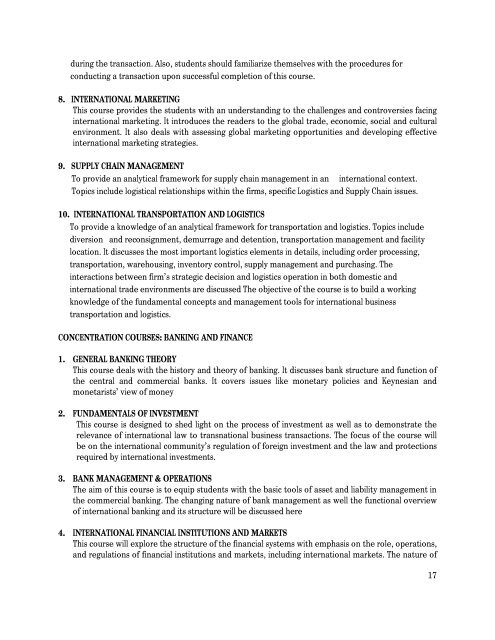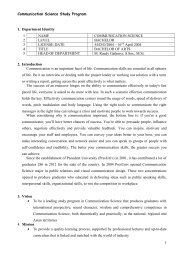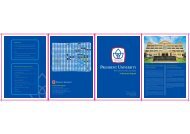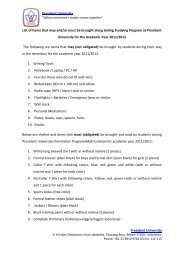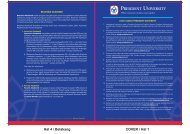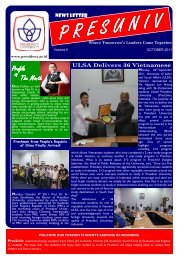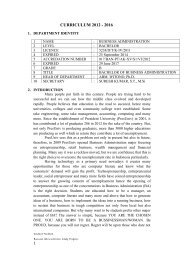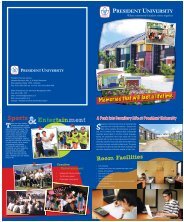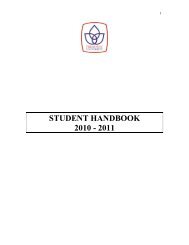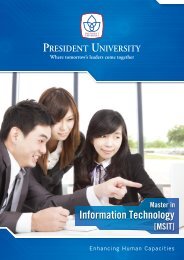Curriculum - President University
Curriculum - President University
Curriculum - President University
Create successful ePaper yourself
Turn your PDF publications into a flip-book with our unique Google optimized e-Paper software.
during the transaction. Also, students should familiarize themselves with the procedures for<br />
conducting a transaction upon successful completion of this course.<br />
8. INTERNATIONAL MARKETING<br />
This course provides the students with an understanding to the challenges and controversies facing<br />
international marketing. It introduces the readers to the global trade, economic, social and cultural<br />
environment. It also deals with assessing global marketing opportunities and developing effective<br />
international marketing strategies.<br />
9. SUPPLY CHAIN MANAGEMENT<br />
To provide an analytical framework for supply chain management in an international context.<br />
Topics include logistical relationships within the firms, specific Logistics and Supply Chain issues.<br />
10. INTERNATIONAL TRANSPORTATION AND LOGISTICS<br />
To provide a knowledge of an analytical framework for transportation and logistics. Topics include<br />
diversion and reconsignment, demurrage and detention, transportation management and facility<br />
location. It discusses the most important logistics elements in details, including order processing,<br />
transportation, warehousing, inventory control, supply management and purchasing. The<br />
interactions between firm’s strategic decision and logistics operation in both domestic and<br />
international trade environments are discussed The objective of the course is to build a working<br />
knowledge of the fundamental concepts and management tools for international business<br />
transportation and logistics.<br />
CONCENTRATION COURSES: BANKING AND FINANCE<br />
1. GENERAL BANKING THEORY<br />
This course deals with the history and theory of banking. It discusses bank structure and function of<br />
the central and commercial banks. It covers issues like monetary policies and Keynesian and<br />
monetarists’ view of money<br />
2. FUNDAMENTALS OF INVESTMENT<br />
This course is designed to shed light on the process of investment as well as to demonstrate the<br />
relevance of international law to transnational business transactions. The focus of the course will<br />
be on the international community’s regulation of foreign investment and the law and protections<br />
required by international investments.<br />
3. BANK MANAGEMENT & OPERATIONS<br />
The aim of this course is to equip students with the basic tools of asset and liability management in<br />
the commercial banking. The changing nature of bank management as well the functional overview<br />
of international banking and its structure will be discussed here<br />
4. INTERNATIONAL FINANCIAL INSTITUTIONS AND MARKETS<br />
This course will explore the structure of the financial systems with emphasis on the role, operations,<br />
and regulations of financial institutions and markets, including international markets. The nature of<br />
17


